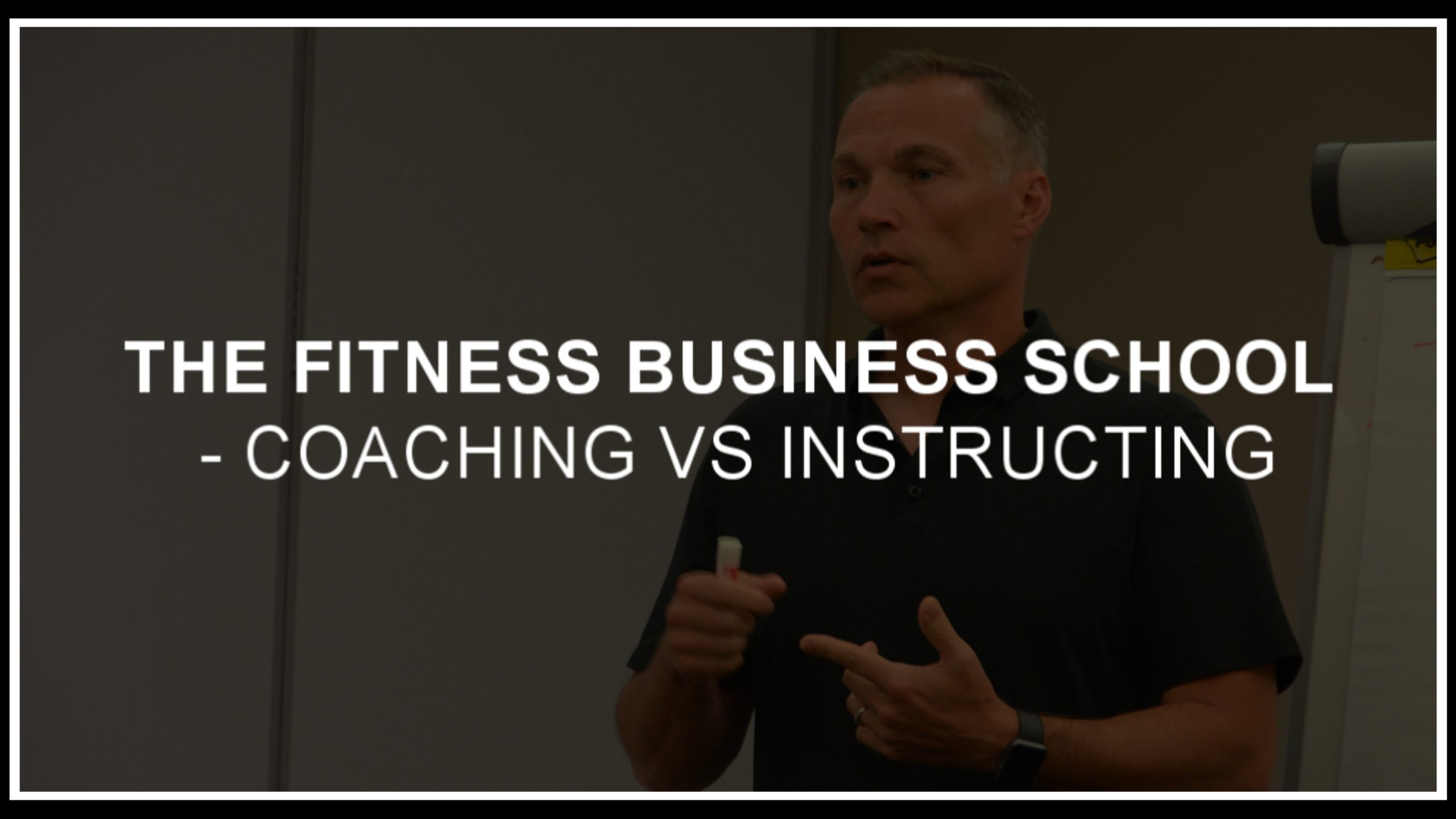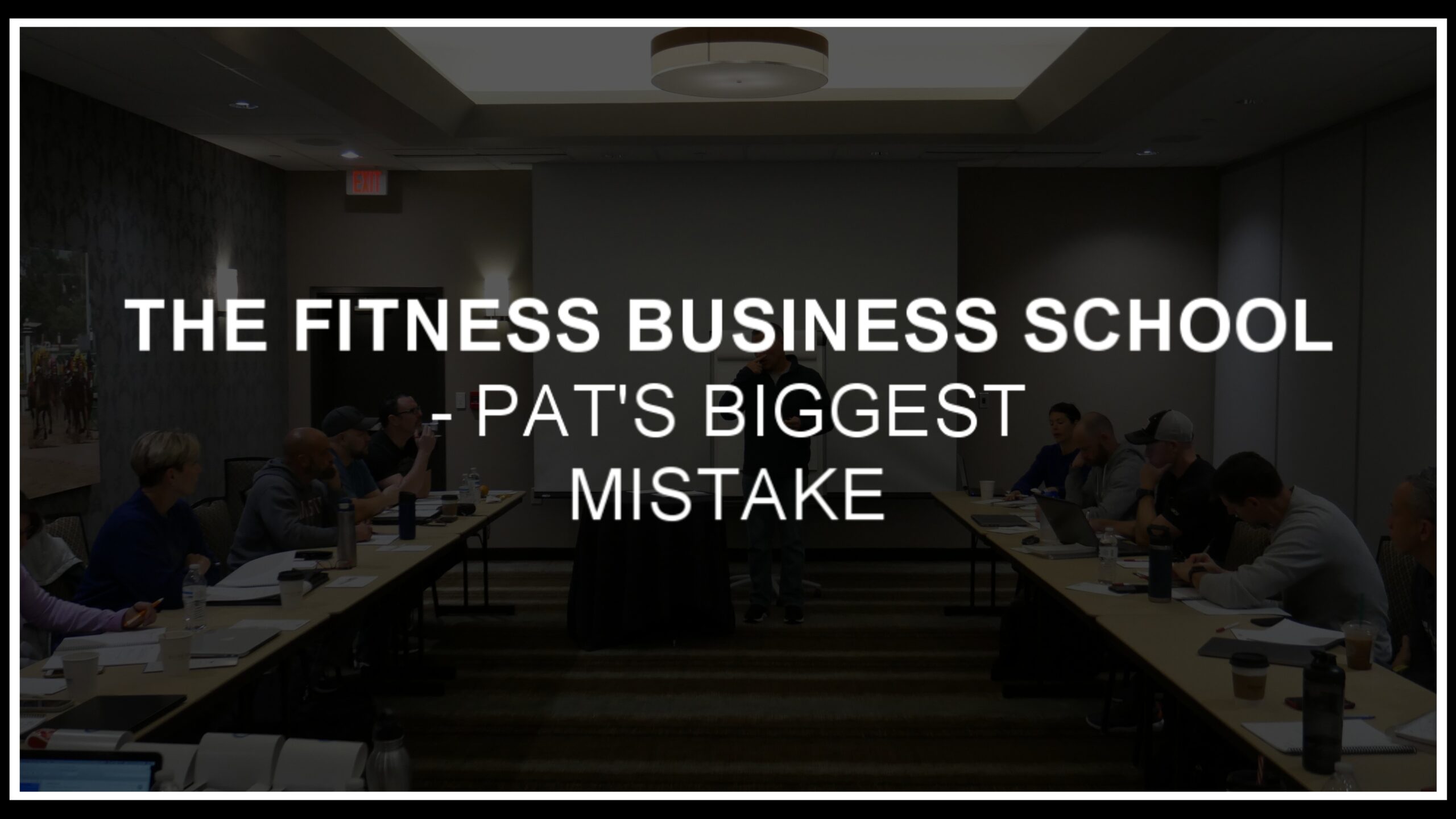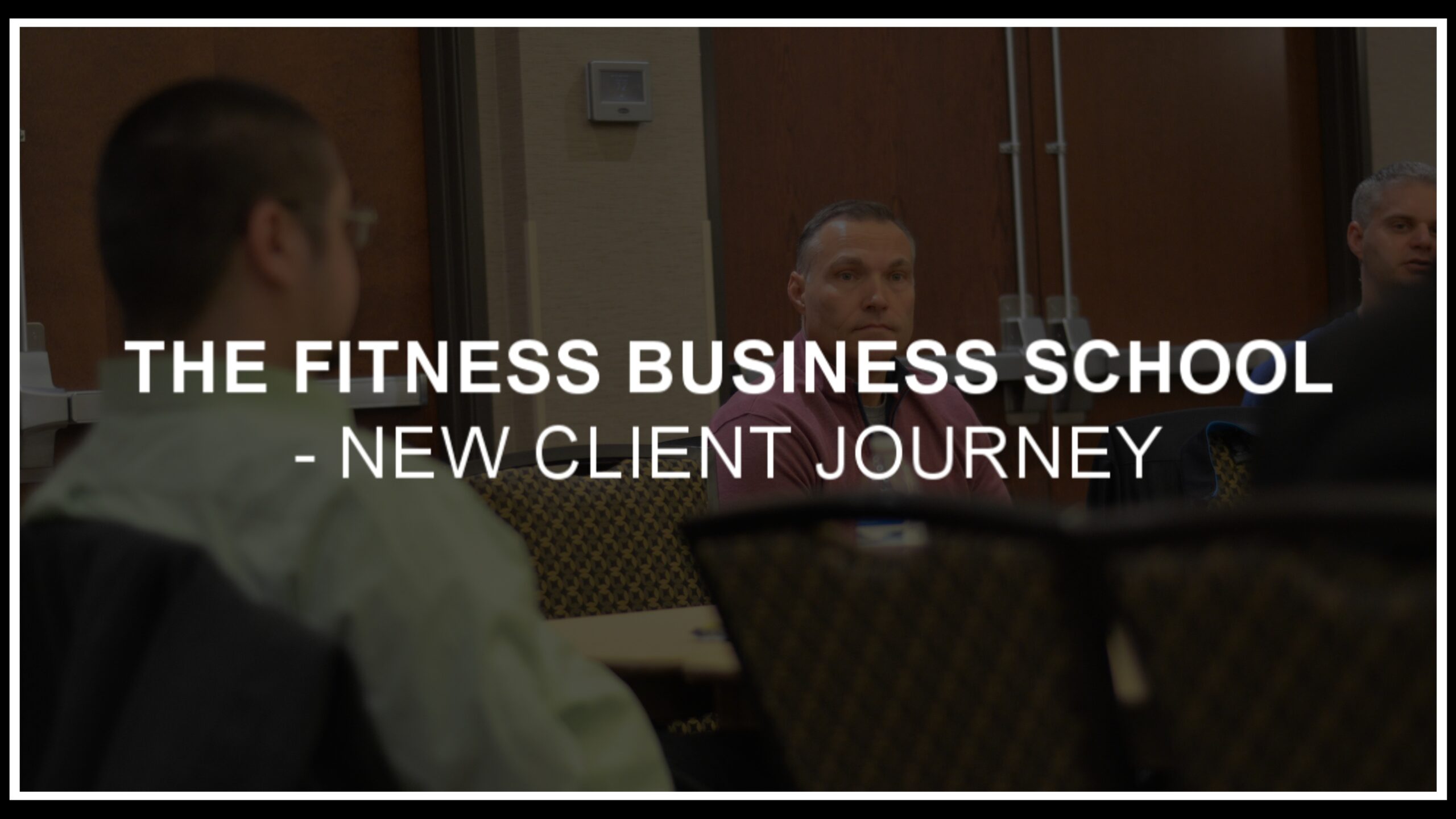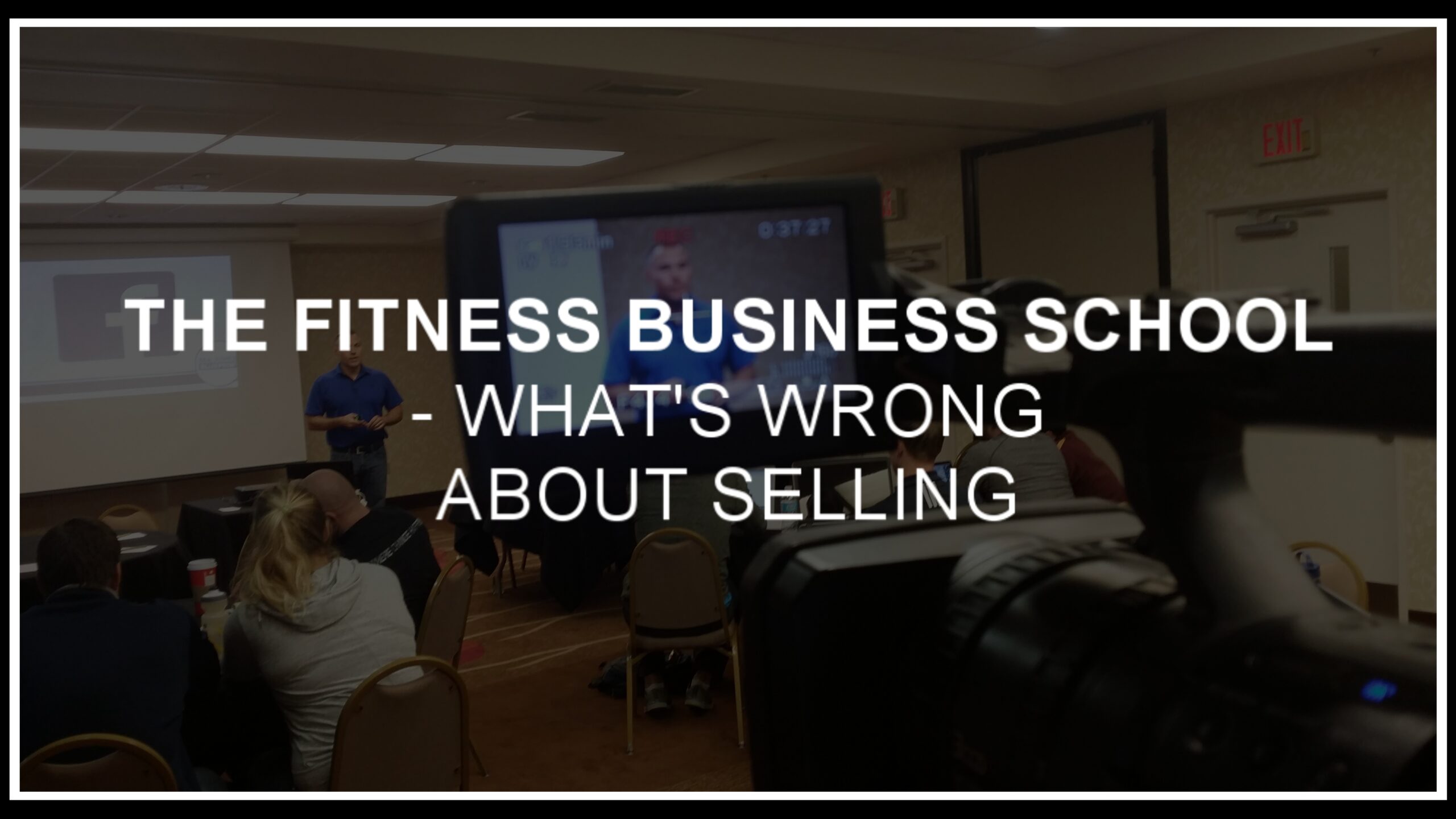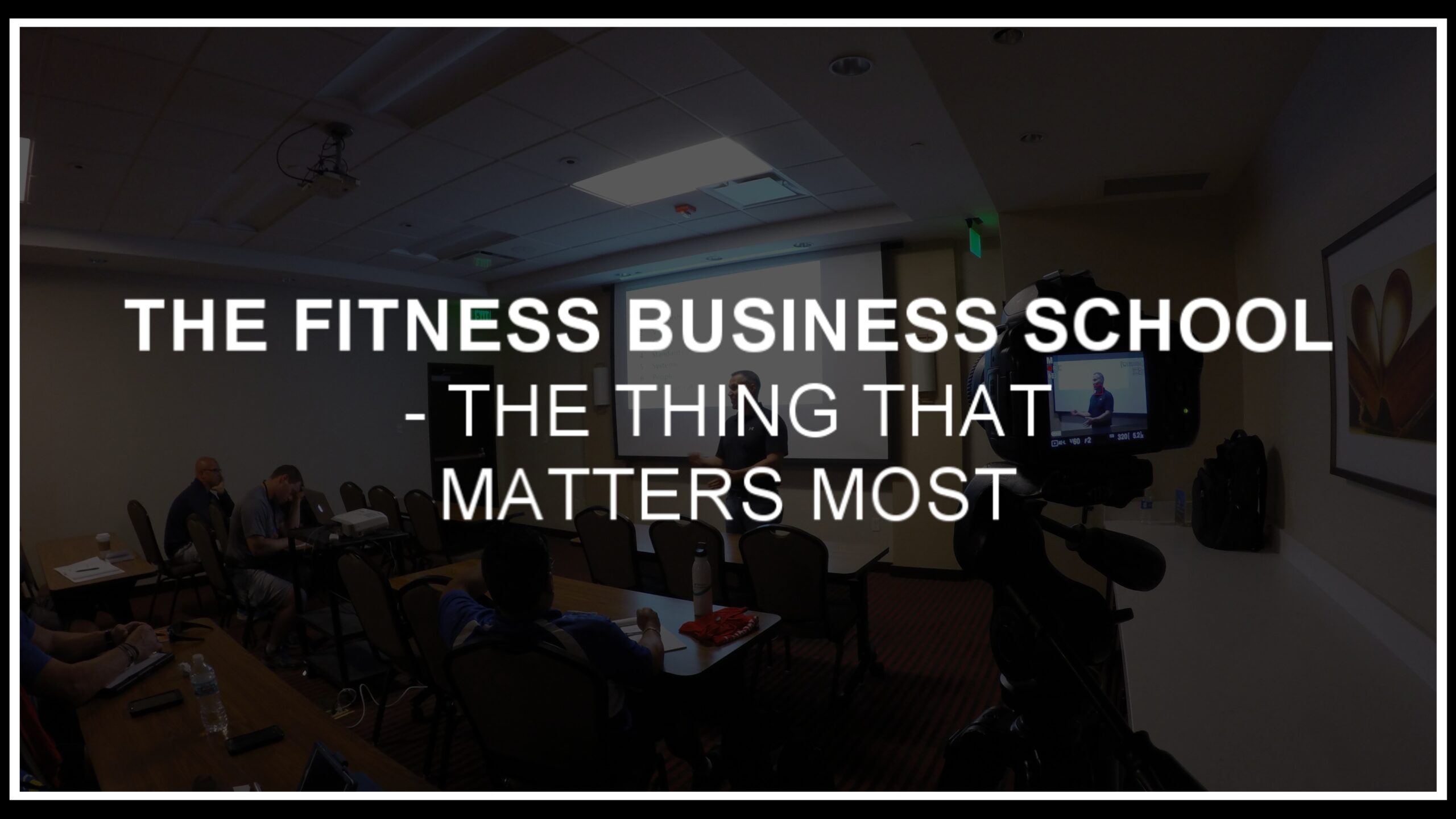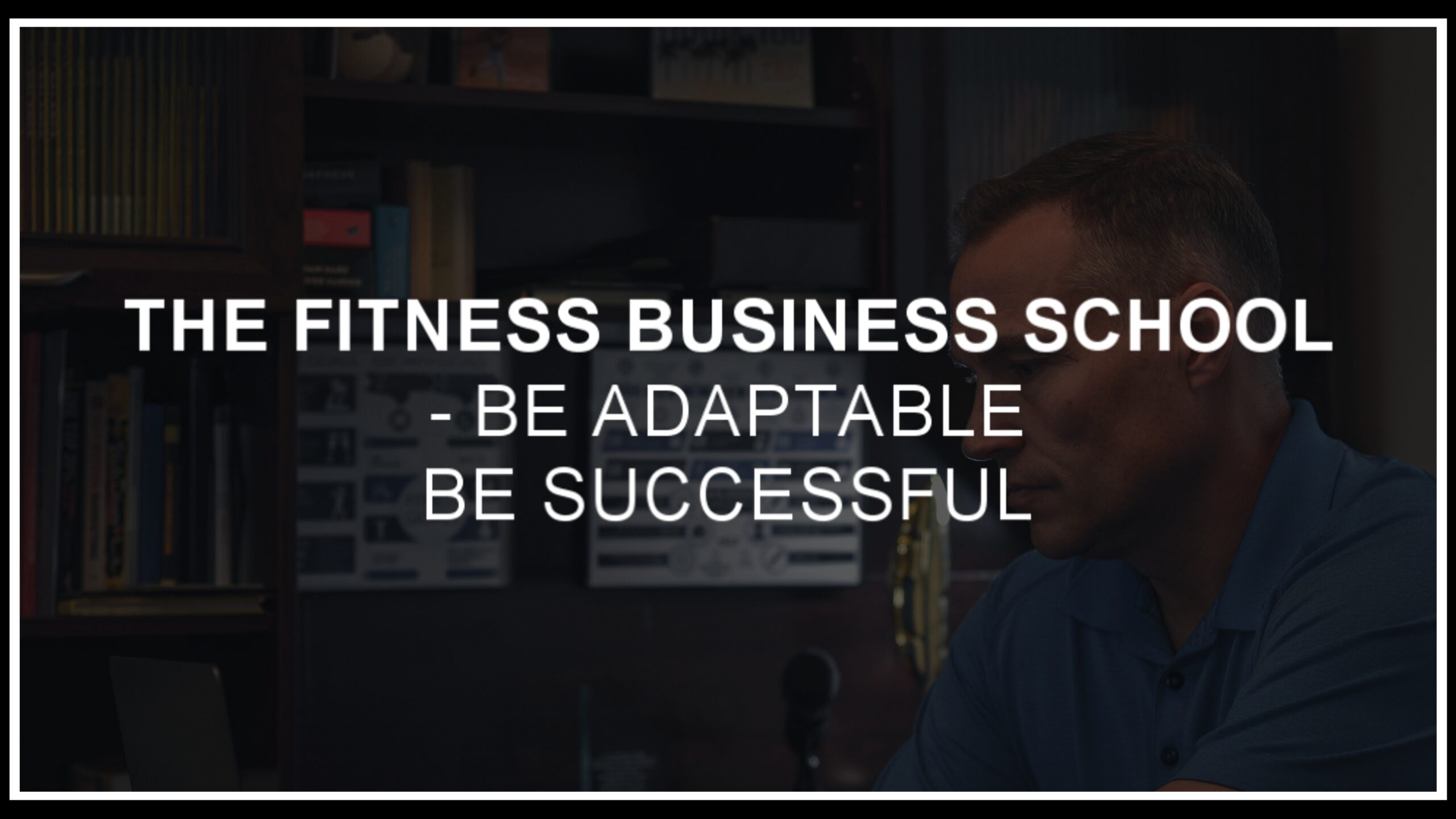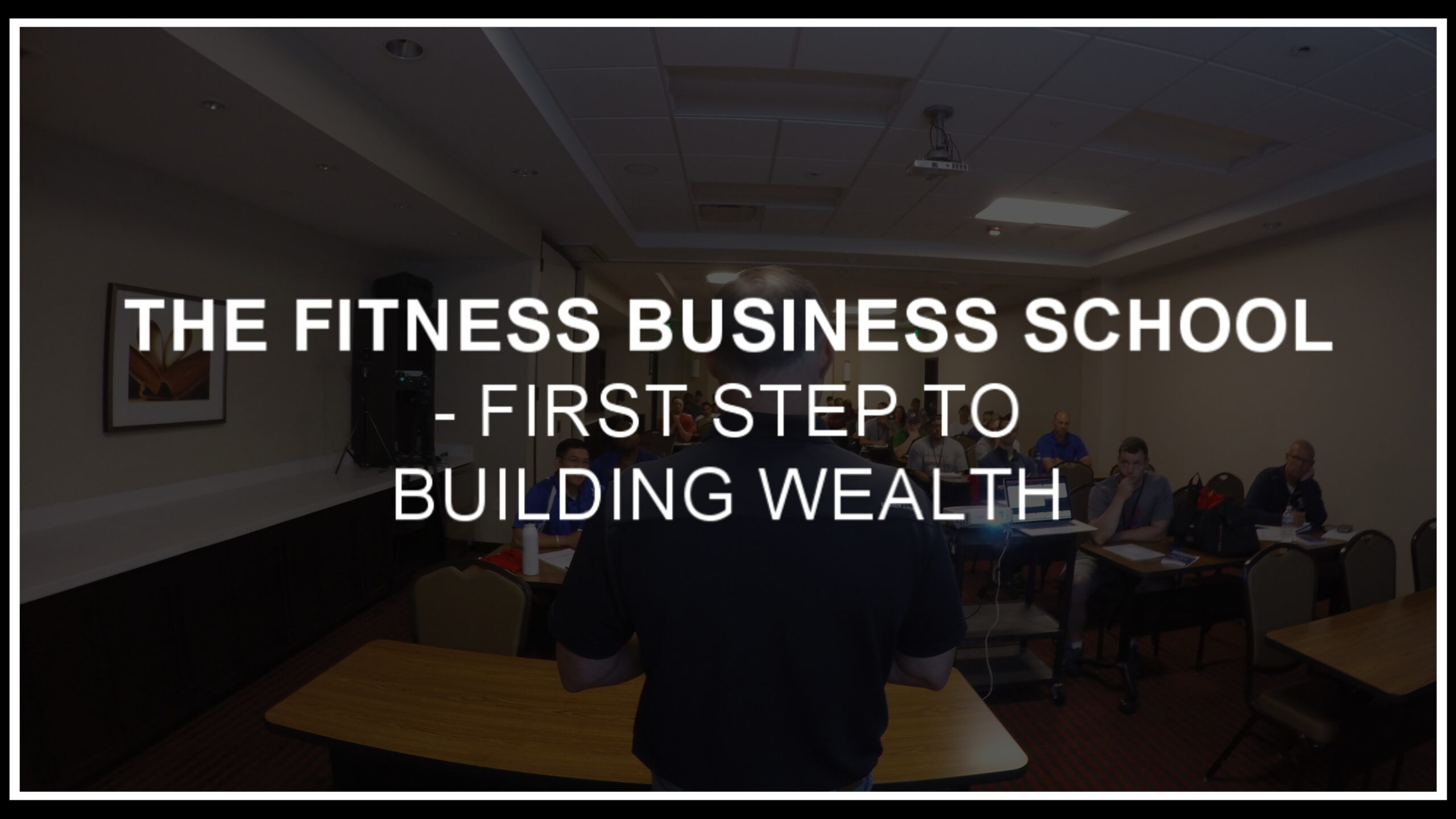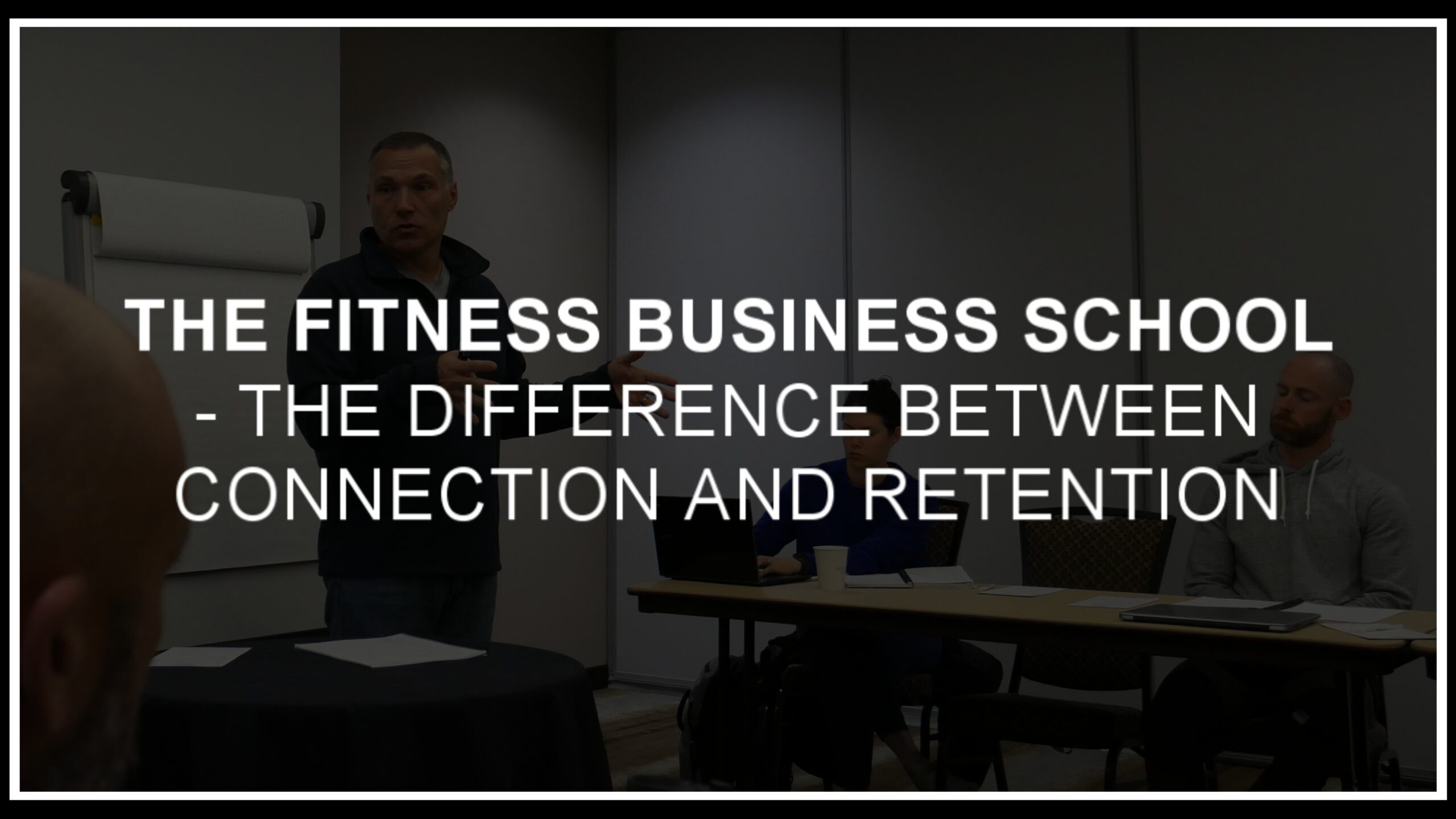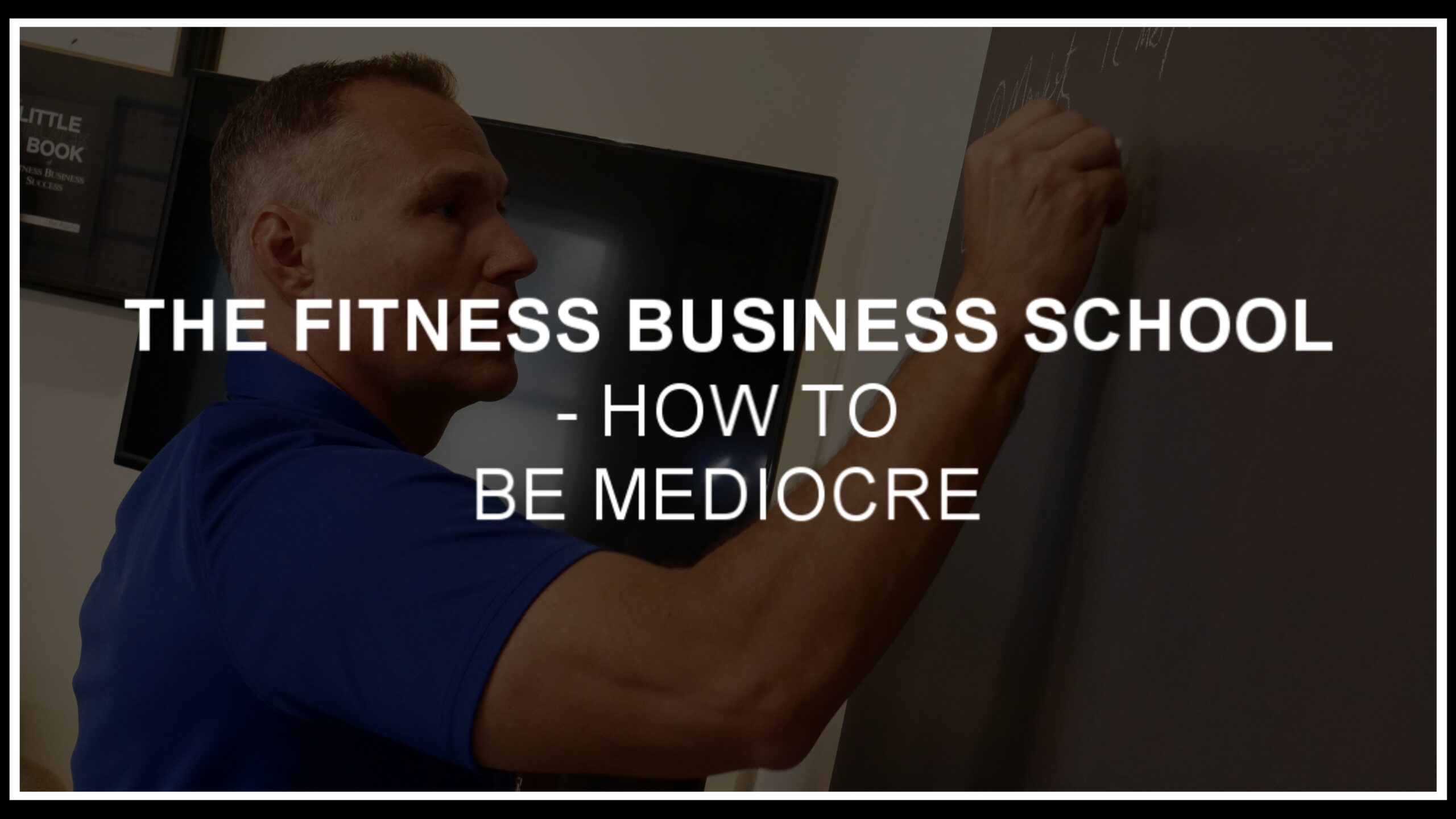Show Notes
- There are endless number of “coaches”
- Coach is often a misused term
- One-way conversation is not a coaching
- Coaching has become too transactional
- Coaching is helping someone be better than they could be alone
- Clients’ unique issues are often overlooked
- Odds are that most industry leaders have something that stands out
- How can you unlock that?
- Working from templates is okay, if they are just a starting point
- We all had “by the book” teachers and exciting engaging teachers
- Understand that 100 clients means 100 individuals
- They each have their own needs, wants, issues
P.S. – 6-Weeks of Coaching…Free.
Get a surge of new clients and revenue over the next 6 Weeks with ZERO FEE and no obligation to continue?
If you’re a current business owner who wants to add 50K or more in annual revenue over the next 12 month, you can Test Drive our coaching program for 6 Weeks with no fee or even an obligation to continue as a way to demonstrate how we can help you grow your business.
No strings attached. No obligation. You get our best coaching & tools…and hopefully, you’ll love it enough that you want to keep working together.
Would you be interested in discussing?
If so, email me here with ‘interested’ in subject line and we’ll set up a chat.
Full Transcript
Hey Pat Rigsby and in this episode, we’re going to cover part four of a six part series on what we’re doing in our business to, to grow, to improve. And maybe more importantly, how you can apply that in your own business today, we’re going to talk about coaching versus instructing and, you know, I’ve got some, some important thoughts on that and how we’re putting it into action and how you can as well. So let’s get to it.
Welcome to The Fitness Business School podcast – the show for fitness business owners who want to grow their income, increase their impact and improve their lifestyle. Be sure to listen til the end of this episode, because we have a brand new special offer exclusive for listeners. So stay tuned.
There are any number of people that call themselves coaches on the internet. You I’m sure see them all in your Facebook feed people talking about their high ticket coaching program, people talking about coaching, but really only meaning selling people that provide courses and misidentify or mislabel it as coaching training businesses that offer some sort of workout program where they instruct people, but they don’t actually coach them. You know, and, and having spent really my entire adult life, I became a coach when I was 21. And since then I guess over the past 28 plus years you know, I I’ve spent coaching, not necessarily always doing a great job. Obviously there was a lot of trial and error along the way. But certainly being a student of coaching, not only a student of others, but a student of my own experiences, what worked, what didn’t, and it’s amazing how much, one way conversation there is in, in the world that I think gets misidentified as coaching. See most people that call themselves coaches are probably a little more transactional than, than, than I think a coach should be, or maybe a lot more transactional than I think a coach would be.
They see people is kind of just, you know, individual items going through their training program or through their course. You know, they’re not, they don’t see them as unique human beings that have their own experiences, desires strengths, limitations, and really just circumstances as a whole. They, they, you know, they probably miss out on what coaching really is. Coaching is helping somebody become better than they could do on their own coaching is meeting somebody where they are and helping them go to where they aspire to be, or maybe beyond where they aspire to be. But there there’s a very human and personal element in coaching, even in group coaching, seeing people as individuals and treating them accordingly. Now sure, if you’re in a group coaching environment, there’s some constraints to how individualized you can be with everything, but it doesn’t change the fact that people need to feel important. They need to feel you know, they need to feel connected. They, they need to be heard in some way they need to be held accountable. They need to, you know, if they’re going to thrive, they probably need to have some standards put in front of them that they have to meet. So, so much of what goes on in the fitness world is instructing. It is here’s the program. I’m going to instruct you to execute our program. And not a lot of thought is given to that unique individual and everything else that, that kind of makes them who they are.
And I think that in our coaching environment, there there’s a lot to be said for seeing each person as an individual. And frankly, that’s kind of what excites me having co-founded two different franchise organizations having consulted with a couple others. You know, having been part a franchisee of one, I, I didn’t love the kind of regimented, this is the only way to do it mentality. In fact, the franchises that I co-founded kind of moved a little bit away from that, which was good and bad. It created some unique challenges for us since that wasn’t the way the franchises were typically done, but it also, I think, was better for you know, the, the, the individual in many ways. So you know, I mean, if you think about all the high performers that you admire, all the people that you look up to let, let’s just put constraints on it, just in our industry, the best coaches, the leaders, the people that you want to go listen to conferences like perform better. Odds are, they’re not just a one size fits all person. Odds are, there’s something that makes them unique.
There’s something that’s different and interesting and compelling about them. Well, I believe that each of us have some of that and my goal, the thing that I’m excited about. And so the thing that we build around in our coaching program is how do we allow each person to kind of unlock that best version of themselves? How do we support them? How do we give them the coaching, the framework, the tools, the kind of done with you mentality, not done for you mentality and everything, because, I mean, that’s, that’s, I think one of the most enjoyable and exciting parts of this is helping somebody really reach, or maybe even exceed what they perceive their potential to be. And, you know, we do that by giving people a lot of coaching in unique situations, I mean, we do over 10 zooms a week, and we, we have some structured things that we talk about, but then we, we do a lot of Q and a with individuals about their own unique circumstances. Without one size fits all answers. We provide templates for a lot of things, but they can take those templates, create their own version of things and get feedback, whether it be marketing material or sales scripts, or programs that they’re going to run, because, you know, it’s supposed to reflect their individuality. And what I think is wonderful about this as they take ownership of it, because it’s their, it’s their identity. It’s something that they’re proud of and they care about as opposed to just instructing kind of straight from the textbook. Right.
And you know, I, I would guess that, you know, throughout your Scholastic time, you had some teachers that just instructed straight from a textbook and it was dry and bland and boring. And then you had some, some teachers or professors who were engaging and, you know, told stories and made things interesting and potentially even captivating. And there’s a lot to that. It’s thinking about the human on the other side of the conversation, on the other side of the interaction, on the other side of the coaching experience now, how does this work in your business? How can we actually transfer this to you to make it useful? Well, I mean, the first thing that I would tell you is understand that if you’ve got a hundred clients in your gym, they are individuals, they are a hundred unique individuals. It’s not a group of a hundred. I saw this a lot early on in the pandemic. If people would have, you know you know 10, 12, 15 people leave, they would think of them as a group, knowing that each person left for their own individual reasons, their own fears, concerns, issues, and you weren’t going to get them back as a group. They were going to come back when you could address those fears, concerns, and issues individually, for them, everybody in your business is an individual person with their own hopes and dreams and fears and concerns. And you need to find ways to treat them accordingly to the best of your ability.
Now, if it’s a group training business, sometimes that’s a little bit more challenging, but that doesn’t mean that you can’t trigger in individual conversations. I know we’ve got a pretty robust coaching program with BGA, but every, every week I get a series of emails sent back to me for I don’t people checking in with their week, what went well, what they need help with all that sort of stuff. And I read them all and I allocate time for that. Just like I would allocate time for a training session. And that’s one way that you can do it. You can just block time or schedule time to do things in a leveraged way where I’m just going down one after the other. And you can do the same thing with email. You can do the same thing with texts. You can do, you know, you can use I mean, there’s great technology out there. Coach catalyst, normally different things like that, that help you provide personal attention to individuals, even in a group setting. But if you want to stand out from the, the, the kind of mass marketed franchised group training businesses that are out there, this is the way, I mean, being a true coach, thinking about how you can connect with people individually, how you can make them feel important. If you’re going to, to, to compete and thrive going forward. I would tell you this needs to be at the top of your to-do list.
Now, if you’d like to see how we approach it, if there there’s some, some business growth in client in, in revenue that you’d like to achieve. Plus you’d like to see how you can maybe model some of the things that we do when it comes to creating a coaching environment. Then shoot me an email. You can do our 30 day free, no obligation test drive, no credit card, no, no obligation to continue, but you can kind of see everything firsthand. Just shoot an email [email protected] And I’ll get you all the details about it, but take it to heart. Coaching is not the same as instructing. And if you want to win in this industry, going forward, coaching is the way.
Thanks for listening to this episode of the fitness business school. Before you go. I have a quick announcement. When I first connect with a new fitness business owner, they almost always ask me, “How can I get more clients and earn more money?” Well, I have an exclusive offer for you as a listener of this podcast, and it’s going to help you do just that. As a listener of this show, you can test drive our Business Growth Accelerator coaching program for 30 days free of charge.
BGA is a one of a kind program where you will get done-for-you marketing tools and a level of coaching that is unmatched in our industry to help you attract more qualified prospects and convert them into paying clients – ultimately making you more revenue and personal income. Imagine having every tool, template, ad, script, everything that you need, all proven to convert and ready to use. Plus you have access to over 10 weekly live coaching sessions to help you with everything from dialing in your Facebook ads to mastering your mindset.
You get all of this and more when you join BGA. And to help you succeed, I’m going to do something that I’ve never done before. I’m letting you test drive BGA for 30 days at zero cost. If it delivers for you in the way that I expect – it more than pays for itself, I’ll invite you to stay on. If not, you’re out nothing and have a library of proven tools and resources to keep and use as you wish.
To take advantage of this special offer. Just email [email protected] and put test drive in the subject line and I’ll get you all the details.


